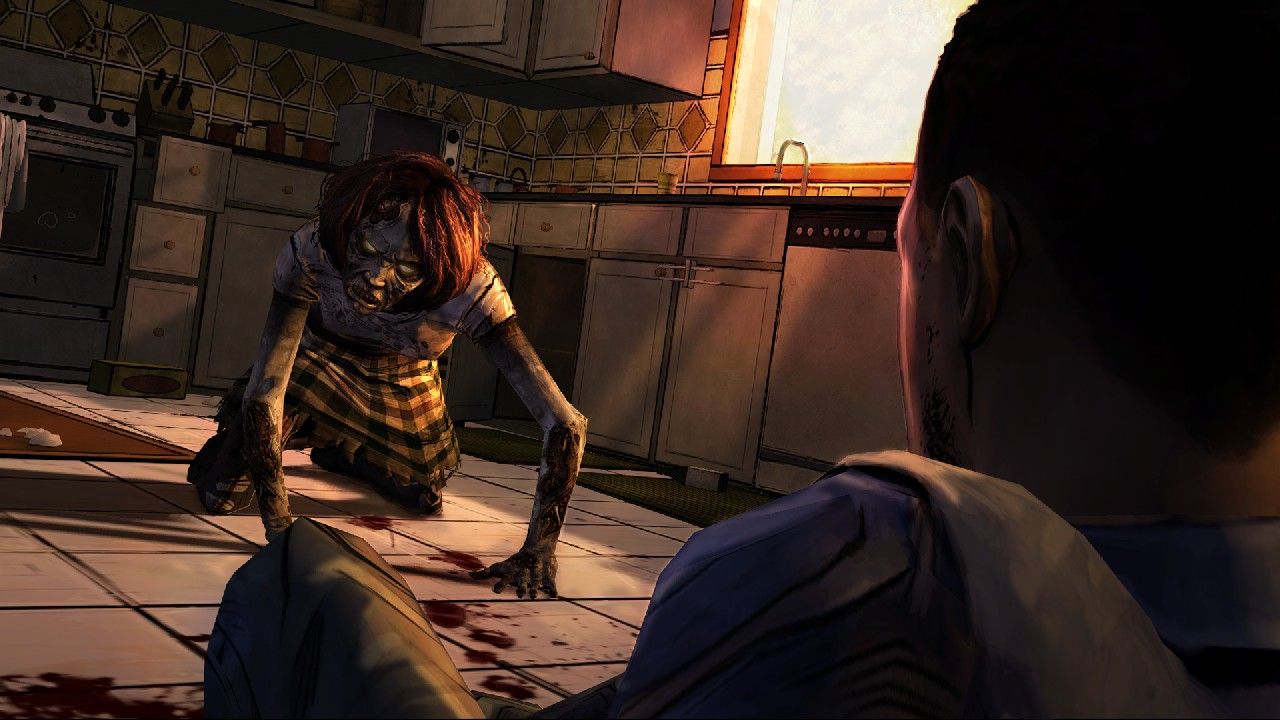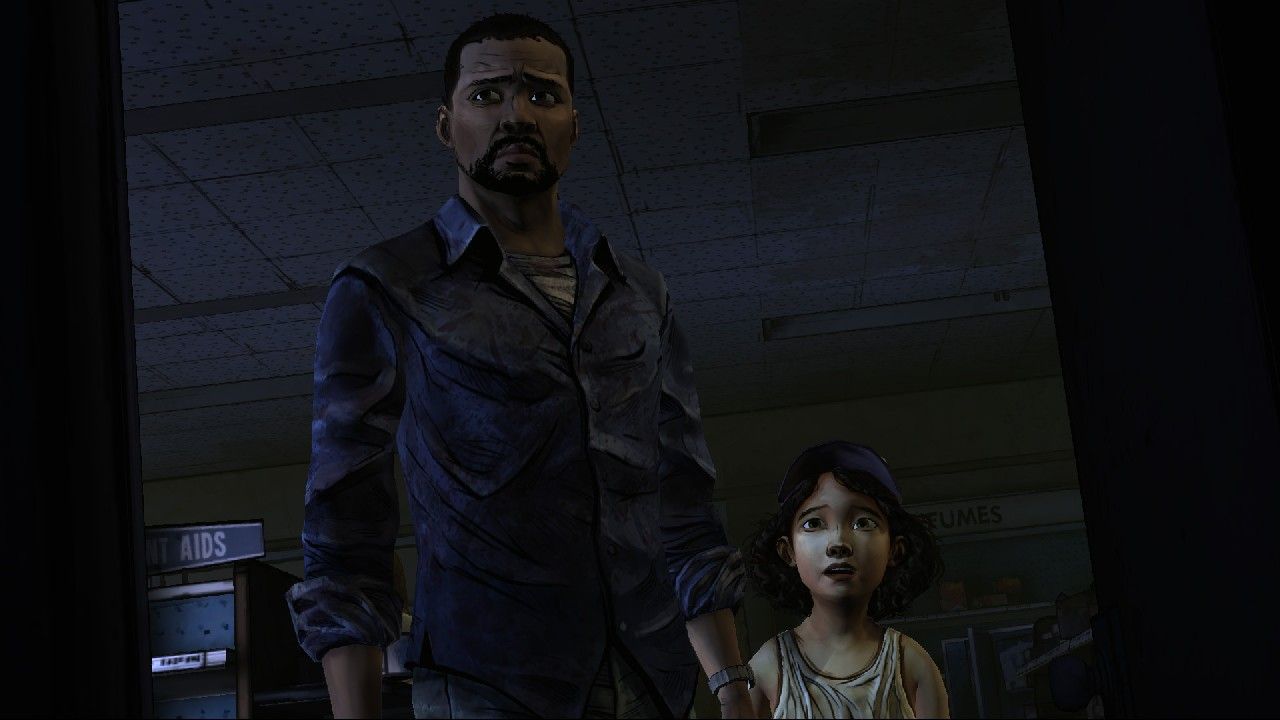The Walking Dead: Episode 1 Review
A more serious title for TellTale, The Walking Dead's strong emphasis on drama and storytelling make up for some defects in gameplay
These might sound like deal-breaker qualities, but the good news is that The Walking Dead manages to make up for these deficiencies by have excellent drama. Even the weak puzzling serves mainly to keep the drama of the episode going, and sometimes your only reward for completing a puzzle is a spot of world development. This focus on storytelling is wonderfully emphasized throughout the game, even in the hint settings that I mentioned: The Walking Dead wisely lets the player decide in great detail how many hints or directions will appear during gameplay, encouraging the player to focus more on the story than on ‘beating the game’. At the end of the episode, rather than giving the player an arbitrary score or completion percentage, the game simply shows the statistics of how often the player’s choices in the storyline aligned with other players. It’s gratifying to see that most people agreed with your decision to save a particular character, and it’s oddly just as gratifying when most people avoid the path you took.

The real star of the show in The Walking Dead is the dialogue, which takes an active hand in nearly all of your actions. The writing is spot on, both in options granted to you (which let you develop the main character in whichever way you deem appropriate) and in the reactions from other characters. The best part about the dialogue is how seamlessly it interacts with other aspects of the game. In most games, dialogue events are strictly separated from other areas of gameplay and usually serve only one or two purposes (exposition and explanation, for example). In The Walking Dead, dialogue is sometimes used to inform the player or frame a basic puzzle scenario, but it also presents the player with plot-altering choices and sometimes even (gasp!) simple, raw character development. Your dialogue might interrupt an action, or be interrupted. One surprisingly delightful feature is the ability to remain silent in most dialogue choices. It’s a twist that isn’t just a cute gimmick, but actually adds depth to your conversations in that you now have the freedom to brusquely refuse to answer questions, or quietly wait your turn in a tense argument. It makes it almost worth replaying an episode strictly to see exactly how the experience changes if you remain silent as often as possible.
This isn’t to say that everything about the dialogue is stellar: I can’t help but feel that the current standard of “walk up to a person, have a one-on-one dialogue” is a form waiting to be embellished, but the way The Walking Dead game has started off, I think we might rationally hope for better things to come. Another slight complaint is that on a second playthrough, the impact of your choices doesn’t have as much effect on the storyline as you might hope. It turns out that some decisions which seem to be plot-defining are actually railroaded into the desired path. The post-game trailer for Episode Two tantalizing shows that your decisions in this first episode will reverberate down through the rest of the ‘season’, but from what I’ve seen so far I can’t help but think that these alternate storylines will likewise be heavily trimmed to stop the branching from getting out of control. You can’t blame TellTale too much: simple mathematics shows that even having only one plot-changing decision per episode will result in thirty-two different endings by the time all five episodes come out, if the effects of those decisions remained persistent. Still, we expect great things from both TellTale and from The Walking Dead, so it would be nice to be pleasantly surprised on this issue.

The PC version of the game suffers a little from being ported. Loading screens in a game this straightforward seem a little out-of-date, and when trying to customize my controls I was presented with (surprise, surprise) an X-box controller map. Quicktime events in general don’t translate very well to a keyboard layout, but the game wisely keeps the button-mashing variety to a minimum, so it’s not too much of a bother. Most quicktime events are of the kind where you’ll need to quickly aim the cursor (usually at a zombie’s head), and these have been artificially hampered somewhat on the PC version to make it more difficult. The engine also seems to halt slightly at key moments, but on the bright side the chosen pastel style excellently fits the Walking Dead franchise (something that TellTale could’ve easily messed up), and the music feels worthy of the series.
The best compliment that can be given to The Walking Dead video game is that it has temporarily slaked my thirst for more Walking Dead TV episodes. Playing through the game feels like watching the show, and I just might go through this summer eagerly waiting on each new game episode. For fans of the show, The Walking Dead isn’t just some cheap cash in, but a legitimate attempt to add to the Walking Dead mythos. Those unfamiliar with the series may still find this title worth a shot, as long as they’re prepared for drama-driven gameplay.
Our ratings for Walking Dead: Season 1 on PC out of 100 (Ratings FAQ)
 Comments
Comments
















